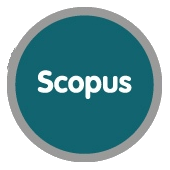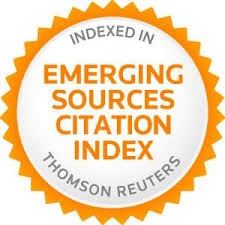La evaluación de los procesos de pensamiento de los maestros en contextos urbanos: un estudio de caso en escuelas primarias de Guatemala
Resumen
Palabras clave
Referencias
Anderson, L.W. (1987). The classroom environment study: Teaching for learning. Comparative Education Review, 31, 69-87.
http://dx.doi.org/10.1086/446656
Artiles, A.J. (1992). Teacher thinking and teacher effectiveness during second-grade reading instruction in inner city schools in Guatemala City: An exploratory study. Un-published doctoral dissertation. University of Virginia, Charlottesville, VA.
Artiles, A. J. (1996). Teacher thinking in urban schools: Toward a contextualized research agenda. En F. Rios (Ed.), Teacher thinking in cultural contexts (pp. 23-52). Albany, NY: State University of New York Press.
Artiles, A.J., & Clark, M.D. (1996). Expandiendo la reforma en la capacitación de docentes en Guatemala: El rol de los procesos de pensamiento de los maestros. Revista Latinoamericana de Psicología, 28, 233-262.
Artiles, A.J., Mostert, M.P. & Tankersley, M. (1994). Assessing the link between teacher cognitions, teacher behaviors, and pupil responses to lessons. Teaching & Teacher Education, 10, 465-481.
http://dx.doi.org/10.1016/0742-051X(94)90001-9
Avalos, B. (1985). Training for better teaching in the Third World: Lessons from research. Teaching & Teacher Education 1, 289-299.
http://dx.doi.org/10.1016/0742-051X(85)90017-4
Avalos, B. (1991). Contexts, training theory, and teaching practice. Teaching & Teacher Education, 7, 169-184.
http://dx.doi.org/10.1016/0742-051X(91)90025-K
Berliner, D. (1987). Ways of thinking about students and classrooms by more and less experienced teachers. En J. Calderhead (Ed.), Exploring teachers' thinking (pp. 60-83). London: Cassell.
Borko, H., Bellamy, M. L., & Sanders, L. (1992). A cognitive analysis of patterns in science instruction by expert and novice teachers. In T. Russell and H. Munby (Eds.), Teachers and teaching: From classroom to reflection (pp. 49-70). London: Falmer.
Borko, H., Livingston, C., & Shavelson, R. J. (1990). Teachers' thinking about instruction. Remedial and Special Education, 11 (6), 40-53.
http://dx.doi.org/10.1177/074193259001100609
Bromme, R. (1987). Teachers' assessments of students' difficulties and progress in understanding in the classroom. En J. Calderhead (Ed.), Exploring teachers' thinking (pp. 125-146). London: Cassell.
Carter, K. (1990). Teachers' knowledge and learning to teach. En C. V. Houston (Ed.), Handbook of research on teacher education (pp. 291-310). New York: Macmillan.
Carter, K., Sabers, D., Cushing, K., Pinnegar, S., & Berliner, D.C. (1987). Processing and using information about students: A study of expert, novice, and postulant teachers. Teaching & Teacher Education, 3, 147-157.
http://dx.doi.org/10.1016/0742-051X(87)90015-1
C. I. A. (1989). The world factbook. Washington, D.C.: Author.
Clark, C. M., & Peterson, P. L. (1986). Teachers' Thought Processes. En M.C. Wittrock (Ed.), Handbook of research on teaching (pp. 255-296). New York: Macmillan.
Clark, C., & Lampert, M. (1986). The study of teacher thinking: Implications for teacher education. The Journal of Teacher Education, 37 (5), 27-31.
http://dx.doi.org/10.1177/002248718603700506
Clark, M. D., & Artiles, A.J. (1997). The impact of boys' learning disabilities on teachers' attributions for test failure: A cross-national comparison. [Manuscript submitted for publication]
Copeland, W. D., Birmingham, C., Demeulle, L., D'Emilio-Caston, M., & Dottie N. (1994). Making meaning in classrooms: An investigation of cognitive processes in aspiring teachers, experienced teachers, and their peers. American Educational Research Journal, 31, 166-196.
http://dx.doi.org/10.3102/00028312031001166
Farkas, G., Grobe, R.P., Sheehan, D., & Shuan, Y. (1990). Cultural resources and school success: Gender, ethnicity, and poverty groups within an urban school district. American Sociological Review, 55, 127-142.
http://dx.doi.org/10.2307/2095708
Fenstermacher, G.D. (1994). The knower and the known: The nature of knowledge in research on teaching. Review of Research in Education, 20, 3-56.
Finn, J.D., & Voelkl, K.E. (1993). School characteristics related to student engagement. Journal of Negro Education, 62, 249-268.
http://dx.doi.org/10.2307/2295464
Fuller, B., & Clarke, P. (1994). Raising school effects while ignoring culture? Local conditions and the influence of classroom tools, rules, and pedagogy. Review of Educational Research, 64, 119-157.
http://dx.doi.org/10.3102/00346543064001119
Fuller, B., Snyder Jr., C. W., Chapman, D., & Haiyan Hua, H. (1991). Teacher rituals, organized sacrilege: The classroom institution in southern Africa. Unpublished manuscript.
Graham, S. (1990). Communicating low ability in the classroom: Bad things good teachers sometimes do. In S. Graham & V.S. Folkes (Eds.), Attribution theory: Applications to achievement, mental health, and interpersonal conflict (pp. 17-36). Hillsdale, NJ: Erlbaum.
Graham, S. (1991). A review of attribution theory in achievement contexts. Educational Psychology Review 3, 5-39.
http://dx.doi.org/10.1007/BF01323661
Kagan, D. M. (1990). Ways of evaluating teacher cognition: Inferences concerning the Goldilocks Principle. Review of Educational Research 60, 419-469.
http://dx.doi.org/10.3102/00346543060003419
Kozol J. (1991). Savage inequalities. New York: Crown Publishers.
Levin, H., & Lockheed, M. (Eds.). (1993). Effective schools in developing countries. London: Falmer.
Lockheed, M., & Levin, H. (1993). Creating effective schools. In H. Levin & M. Lockheed (Eds.), Effective schools in developing countries (pp. 1-19). London: Falmer.
Lockheed, M., & Verspoor, A. (1991). Improving primary education in developing countries. New York: Oxford University Press.
Montero-Sieburth, M. (1996). Teachers', administrators, and staff's implicit thinking about "at-risk" urban high school Latino students. In F. Rios (Ed.), Teacher thinking in cultural contexts (pp. 55-84). Albany, NY: State University of New York Press.
Morine, G., & Vallance, E. (1975). A study of teacher and pupil perceptions of classroom interaction [BTES Technical Report 75-11-6, Special Study B]. San Francisco, CA: Far West Laboratory.
Morine-Dershimer, G. (April, 1992). Patterns of interactive thinking associated with alternative perspectives on teacher planning. Paper presented at the annual meeting of the American Educational Research Association, San Francisco, CA.
Pajares, F. (1992). Teachers' beliefs and educational research: Cleaning up a messy construct. Review of Educational Research, 62, 307-332.
http://dx.doi.org/10.3102/00346543062003307
Psacharopoulos, G. (1993). Ethnicity, education, and earnings in Bolivia and Guatemala. Comparative Education Review, 37, 9-20.
http://dx.doi.org/10.1086/447161
Richardson, V., Anders, P., Tidwell, D., & Lloyd, C. (1991). The relationship between teachers' beliefs and practices in reading comprehension instruction. American Educational Research Journal, 28, 559-586.
http://dx.doi.org/10.3102/00028312028003559
SIMAC (1988). Bases y elementos para la educación curricular. Guatemala City, Guatemala: Ministerio de Educación.
SIMAC (1991). Incorporación del componente de educación especial en los currícula del sistema educativo nacional. Guatemala City, Guatemala: Ministerio de Educación.
Smith, G. (1988). Guatemala: A Fragile Democracy. National Geographic, 13, 768-803.
Steele, D. (1994). Guatemala. In G. Psacharopoulos & H. A. Patrinos (Eds.), Indigenous people and poverty in Latin America (pp. 98-126). Washington, D. C.: The World Bank.
Stromquist, N. P. (Ed.). (1994). Education in urban areas: Cross-national dimensions. Westport, CT: Praeger.
Thomas, M. (1994). Defining urban in educational studies. En N. P. Stromquist (Ed.), Education in urban areas: Cross-national dimensions. Westport, CT: Praeger.
Tilak, J. B. G. (1991). Development indicators. En G. Psacharopoulos (Ed.), Essays on poverty, equity and growth (pp. 291-399). London: Pergamon Press.
Tollefson, N., & Chen, J. S. (1988). Consequences of teachers' attributions for student failure. Teaching & Teacher Education, 4, 259-265.
http://dx.doi.org/10.1016/0742-051X(88)90005-4
USIPE (1987). Información educacional. Guatemala City, Guatemala: Ministerio de Educación.
USIPE (1991). Información educacional. Guatemala City, Guatemala: Ministerio de Educación.
WCEFA (1990). Meeting basic learning needs: A vision for the 1990s. New York: Unicef.
Weiner, B. (1995). Judgments of responsibility: A foundation for a theory of social conduct. New York: Guilford.
Enlaces refback
- No hay ningún enlace refback.


